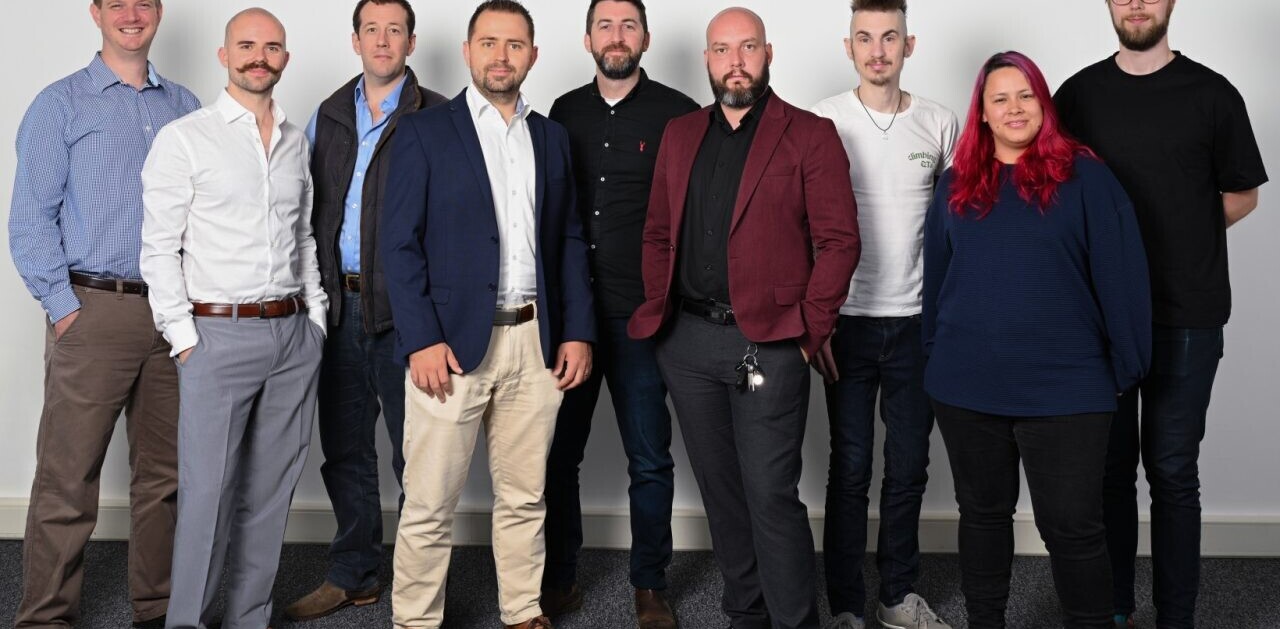
In the digital age, politics can often seem stuck in the past and unable to keep up with the pace of technology. One exception to this is the Pirate Party movement. Emerging in Sweden in the middle of the last decade, it quickly spread around Europe and the world, with a political emphasis on issues like copyright and privacy.
A surge in interest in the Pirate Party movement began after Sweden’s party saw success in the 2009 European Elections. One place in which this was true was the UK, where the Pirate Party UK emerged, quickly gaining support as a result of the controversy surrounding a group of laws called the Digital Economy Act, which (among other things) allow for anyone even suspected of having carried out illegal file sharing to have their Internet connection removed by their ISP.
I met up with Pirate Party UK leader, Laurence “Loz” Kaye, to find out more about the movement, what its plans for the future are and whether a party with ‘Pirate’ in its name will ever really be taken seriously.
What does the Pirate Party believe in?
 A musician, composer and university lecturer by trade, Loz Kaye says that he was stirred into political action by the Digital Economy Act.
A musician, composer and university lecturer by trade, Loz Kaye says that he was stirred into political action by the Digital Economy Act.
“About 2 years ago I got tired of complaining about things and posting narky Facebook updates about a range of political issues,” he explains. “I always counted myself as politically interested but I couldn’t see myself in any of the main parties, and frankly I think it’s that situation for a lot of people now.”
“I was appalled by the Musicians Union and (actor’s union) Equity for their part in pushing for the Digital Economy Act as I felt it was completely contrary to a desire for freedom to communicate, and instead of helping our interests, it was hindering them.”
Kaye was drawn into the Pirate Party UK and became leader in August 2010. The party’s manifesto concentrates on three core areas: copyright & patents, privacy and freedom of speech. At present, the Digital Economy Act is the most pressing issue for Kaye, along with the potential extradition of British piracy suspects to the US despite the fact there is little actual connection between the alleged offences and America.
These are undoubtedly important issues, but who is motivated to join a political movement about them?
“Typically, the Pirate Party worldwide has had a lot of interest from people with a technological background who are concerned about issues like Web blocking or, on a more positive side, things like open data. However, these issues are for everyone and we have members including teachers, a day trader, even people from an ex-military background. That might be a surprise to people, given our interests in things like transparency and WikiLeaks, but I think that everyone’s starting to realise that the free exchange of data is important not only for our culture, but our economy.”
Would you vote for a ‘pirate’?
 At barely two years old, the Pirate Party UK is yet to become a well-known name amongst voters, but Kaye believes that its presence is already being felt. He notes that the party punches above its weight in terms of media coverage. That said, he does note that “Our greatest achievement is still being here. We’re still at a point where every vote counts, every quid we receive counts and every member counts.”
At barely two years old, the Pirate Party UK is yet to become a well-known name amongst voters, but Kaye believes that its presence is already being felt. He notes that the party punches above its weight in terms of media coverage. That said, he does note that “Our greatest achievement is still being here. We’re still at a point where every vote counts, every quid we receive counts and every member counts.”
Indeed, Kaye says that membership of the party has declined from around 1000 at the height of publicity around the Digital Economy Act last year, down to around 500 now. “I want us to be much bigger, but it’s really difficult to get people to join a political party these days. We’ve got out of that habit in the UK – it’s like we’ve outsourced politics to a political elite. A lot of people feel like they’re on the outside looking in, and it’s quite difficult to persuade them that they can actually join a party and make a difference.”
While the Pirate Party UK may have a strong stance on the issues it believes in, its policies on wider issues like education and defence aren’t well-defined at present. Doesn’t that make it more of a pressure group than a fully fledged political party? Kaye believes that there are enough pressure groups out there, bending politicians’ ears about copyright and online rights. Groups like Coadec and the BPI push their varying agendas on the issues at hand, but what Kaye says the Pirate Party can offer is a bit of good old-fashioned political clout by “making the right people sweat.”
“At the end of the day, what will really change politicians’ minds is not statistics and reports but the thought that someone could actually snatch a thousand votes and tip the seat. That’s really where the pressure has to be put. Other parties are beginning to see that these issues are important, but they won’t be willing to put them at the heart of the endeavour.”
 Won’t gaining enough votes to make a difference be difficult with a name that stirs up images of peg-legged, eyepatch-wearing ruffians and illegal downloading? Regardless of whether they agree with the issues or not, will voters take a ‘Pirate Party’ seriously enough to actually vote for them? For Kaye, it’s all about impact.
Won’t gaining enough votes to make a difference be difficult with a name that stirs up images of peg-legged, eyepatch-wearing ruffians and illegal downloading? Regardless of whether they agree with the issues or not, will voters take a ‘Pirate Party’ seriously enough to actually vote for them? For Kaye, it’s all about impact.
“Rick Falkvinge, who launched the Swedish Pirate Party, talked about this,” says Kaye. “He said that if it had launched as the ‘Net Freedom Party’, it would have remained an obscure website. It certainly means that people don’t forget who we are. We’ve found that when we go out and talk to people on their doorsteps, it’s not actually a problem. Anyone who thinks it’s a major problem is never likely to vote for us anyway, so it doesn’t really matter.”
Kaye also sees the name as a way of ‘re-appropriating’ or ‘reclaiming’ the word ‘pirate’ from its negative connotations. “Perhaps we might consider changing it when, say, the American government or international intellectual property organisations stop using that terminology when writing their treaties. They’re the ones who are using it negatively. We’re turning it around to say that it’s not about threatening culture – quite the reverse.”
Where the party’s headed
 So, where is the Pirate Party UK headed? “I’ll be happy if we get to a stage where we no longer feel like the Internet is under siege. If we get there, then I’ll just go back to writing music, but that’s a long way off at the moment.” Kaye does see some signs of a change in the air though. He sees the recently published Hargreaves Report into intellectual property rights in the UK as a positive step forward, and believes that politicians are starting to see that online rights and copyright are issues that could influence voters.
So, where is the Pirate Party UK headed? “I’ll be happy if we get to a stage where we no longer feel like the Internet is under siege. If we get there, then I’ll just go back to writing music, but that’s a long way off at the moment.” Kaye does see some signs of a change in the air though. He sees the recently published Hargreaves Report into intellectual property rights in the UK as a positive step forward, and believes that politicians are starting to see that online rights and copyright are issues that could influence voters.
In the next year, the Pirate Party is aiming to field candidates in carefully selected local council election seats, as a step towards what Kaye hopes to have achieved when I ask him about his vision for the party in five years time. “Europe-wide, laws like the Digital Economy Act are untenable, and I don’t believe that the people will stand for it, so in five years time I want to have changed the direction of travel on these issues.”
Even if voters believe in the issues at hand and aren’t deterred by the idea of voting for a ‘Pirate’, won’t they want a candidate who has strong policies on wider issues – everything from free school meals and recycling to nuclear power and the war in Afghanistan? The Pirate Party UK bills itself as a new kind of party that is neither right-wing nor left-wing. So what is it?
While most of Kaye’s answers to my questions were straightforward, it’s here that the Pirate Party might have problems. A party that doesn’t fit into traditional liberal or conservative pigeonholes has the problem that its members will have a wide range of opinions on issues away from its core policies. Kaye answers me by talking about a belief in individual freedoms but states that he wants to see the old style of politics where parties have core, wide-ranging policies, fall away and be replaced by needs to fall away and be replaced by something new. He talks about how the Pirate Party isn’t bogged down by years of history like other parties and how this means that it’s lighter on its feet in responding to concerns of the public via social media.
The Pirate Party has recently restructured itself and is in the process of refining the way it presents its message to the public. When a potential voter asks where the party stands on, say, an environmental issue, responding that ‘the entire political system needs to change’ may seem a little confusing.
Sure, the Pirate Party’s main goal may be to exert pressure on the big parties over the issues it believes in, rather than to end up running the country itself, but it remains to be seen whether it can convince a large enough group of people that a ‘protest vote’ on digital rights is worth more than a vote for a party with a more well-rounded set of policies.
Get the TNW newsletter
Get the most important tech news in your inbox each week.




